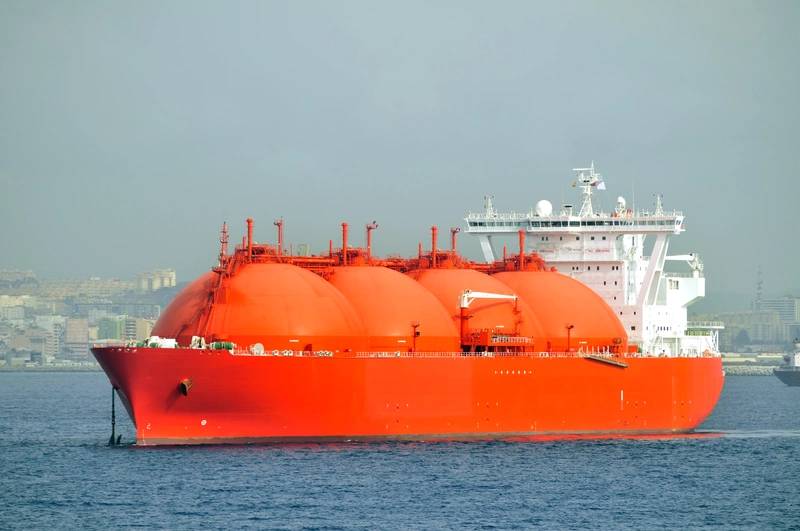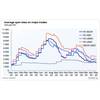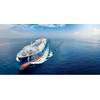KR Publishes New Rules for Membrane-type LNG Carriers
The Korean Register (KR) said it has completely revised its existing structural rules for membrane-type liquefied natural gas (LNG) carriers.
The newly published class rules apply the concept of equivalent design wave (EDW) based on direct load analysis to determine structural arrangements and scantling that meet the structural strength, buckling and fatigue strength criteria for various load scenarios, and reverify it by applying direct structural analysis, KR said.

The new rules cover not only the general sizes of LNG carrier, but also the ultra-large LNG carriers – the 210,000 to 266,000 cubic meter (m3) capacity (Q-Max) by analyzing and reflecting the motion characteristics of these vessels. The new rules have also been developed to fully comply with the International Gas Carrier (IGC) Code.
In order to test and improve the rules, KR has conducted an impact analysis on a 170,000 m3 class membrane-type LNG carrier working in collaboration with shipbuilders Hyundai Heavy Industries, Daewoo Shipbuilding & Marine Engineering and Samsung Heavy Industries.
According to KR, it is anticipated that the structural design time for LNG carriers will be drastically shortened through the inclusion of the new rules in KR's structural scantling and strength evaluation program SeaTrust-HullScan, already used by many design companies and shipyards.
"The new rules for LNG carriers will be applied to membrane-type LNG ships over 150 meters in length, and our LNG technology development work will continue as we work alongside leading shipyards both domestic and abroad, providing the best technical services possible for our LNG customers,” said Kim Yeon-tae, Executive vice-president, Technical Division, KR.
In addition, KR has completed design approval for various types of cargo holds (MARK III (GTT), No.96 (GTT), KC-1 (KC LNG Tech.), SOLIDUS (Daewoo Shipbuilding & Marine Engineering), SCA (Samsung Heavy Industries), and provides technical services for Type B type LNG carriers and Type C type LNG bunkering vessels as well as for the membrane-type cargo holds.
Related News


